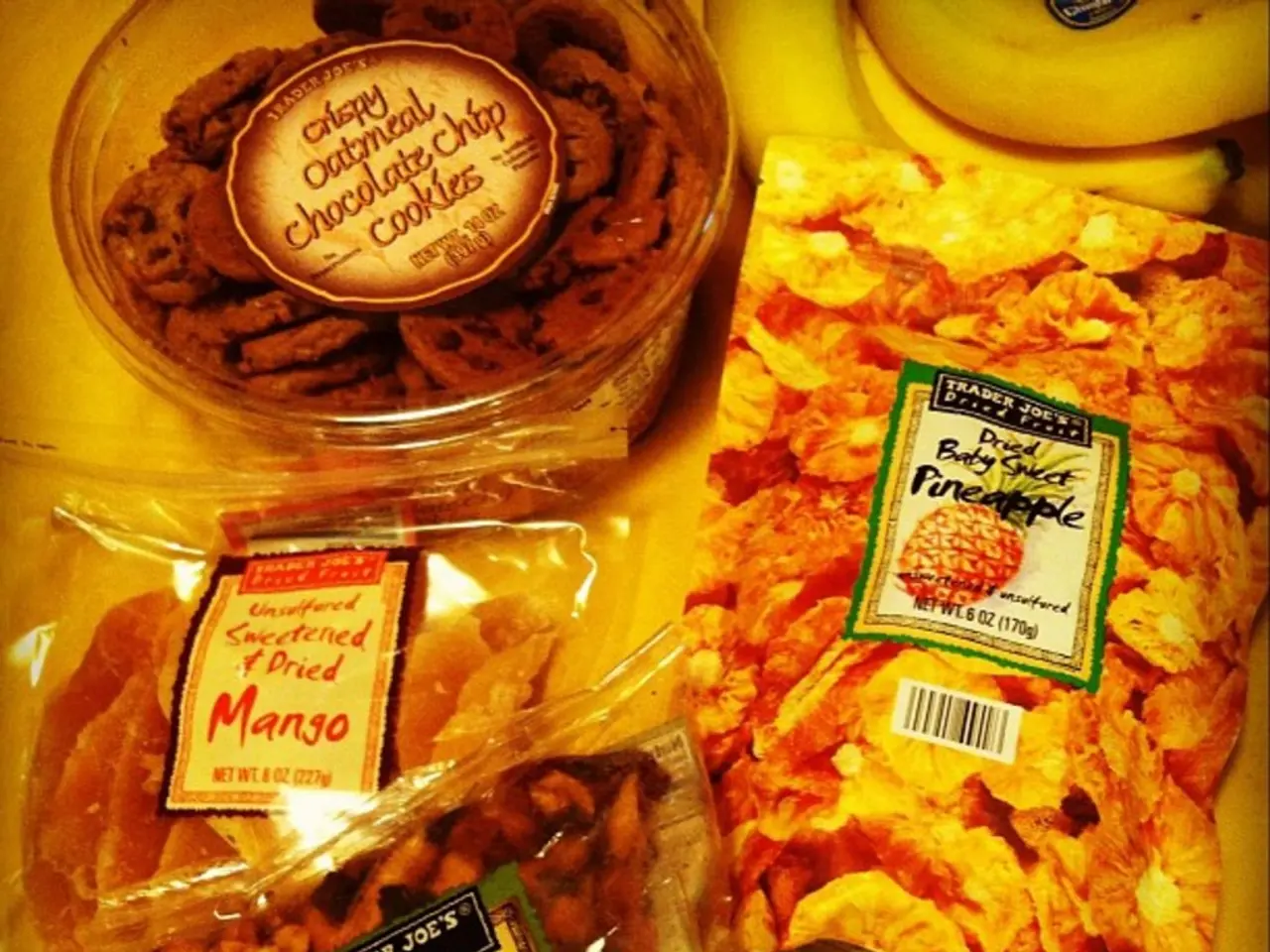Toronto-based food rescue organizations urge hotel chains to enhance their food waste reduction practices
In the heart of Toronto, the city's bustling hospitality industry is grappling with a pressing issue: food waste. Jasmine Manpreet, a former hotel event staff, has observed how post-COVID-19 policies have slowed down the progress towards food sustainability in hotels. Thousands of pounds of leftover food are wasted every month, she claims, a stark reminder of the challenge at hand.
One solution to this problem lies in food upcycling, a practice championed by Toronto-based company Spent Goods. They argue that solutions to food waste already exist and need to be implemented at the management level. Food waste in Canada produces approximately 124.5 billion pounds of greenhouse gas emissions annually, equivalent to emissions from 17.3 million cars on the road. About 7% of all avoidable food waste in Canada occurs at the HRI level (hotels, restaurants, and institutions), amounting to approximately 1.4 million metric tons annually.
The Chelsea Hotel, one of Toronto's largest hotels, is involved in food rescue initiatives. Leftover food is either repurposed or donated through Second Harvest, a food rescue organization. However, Second Harvest says many hotels in Toronto still follow outdated food management and waste policies.
Tony Colley, who once worked as event staff at a hotel chain, was asked to discard surplus food, citing lack of time to prep and package as reasons. To address these concerns, Colley has developed a logistics platform that provides packaging, labels, and logistics for hotels, making it cheaper than disposing of food waste.
However, management at many big chains lack the knowledge to understand how to streamline food waste reduction processes without impacting day-to-day schedules. This is a challenge that food upcycling and rescue organizations like Second Harvest face, along with logistical hurdles and a lack of meaningful action in the hospitality industry.
The issue of food waste is deeply tied to both the crisis of food insecurity and the crisis of climate change. Nearly 47% of all food in Canada is wasted, and almost 42% of that food is still safe for consumption. Food insecurity is escalating across Canada, making the need for change more urgent.
Winston Rosser from Second Harvest confirms that food waste in hotels and institutions remains a significant and under-addressed issue. Many hotels in Toronto have yet to implement food waste reduction initiatives, according to Tony Colley from Be One to Give. Until the hospitality industry takes stronger, systemic steps to reduce food waste, the gap between surplus and need will continue to grow, according to food rescue advocates.
Despite these challenges, there is hope. Operational changes like smaller buffet portion sizes and withholding untouched food for donation are simple and effective ways to manage surplus portions. As the hospitality industry adopts these practices, they can help reduce food waste, combat climate change, and address food insecurity, making Toronto's hotels a beacon of sustainability in the fight against these crises.
Read also:
- Peptide YY (PYY): Exploring its Role in Appetite Suppression, Intestinal Health, and Cognitive Links
- Toddler Health: Rotavirus Signs, Origins, and Potential Complications
- Digestive issues and heart discomfort: Root causes and associated health conditions
- House Infernos: Deadly Hazards Surpassing the Flames








